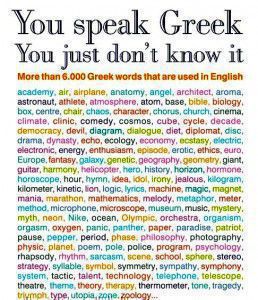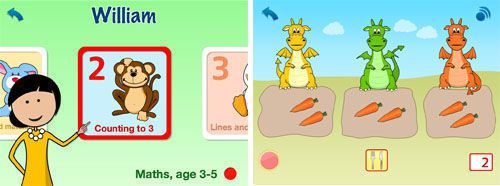The challenges of translation
Over the last six months we’ve had our new free app uTalk translated into over 30 languages, and dealt with over 120 native language speakers who’ve either translated or performed the scripts. Along the way we’ve confronted many challenges which really emphasise how one language can be ambiguous whilst another is precise, and vice versa.
In English, for example, we can go to the shop and ask for a pepper without having to specify the colour, or order a boiled egg without stating whether it should be hard or soft; we refer to brothers and sisters without having to qualify their age; we talk about grandparents, uncles and aunts without saying which side of the family they are on and, perhaps most infuriatingly for non-native speakers (those inclined towards a bit of juicy gossip), we can refer to friends and partners without having to say whether they are male or female. We can be elusive and a little bit mysterious through the vagueness of the English tongue. This is not always the case in every language, and here are a few examples of what we’ve learnt so far:
 – In Vietnamese, you don’t just have a brother or sister: there is no general word. Instead, you specifically have an older or younger brother or sister. In Basque, too, there is no generic word, but the difference depends on the gender of the speaker rather than age: my Mum’s word for her brother (neba) will be different to my Dad’s word for his brother (anaia).
– In Vietnamese, you don’t just have a brother or sister: there is no general word. Instead, you specifically have an older or younger brother or sister. In Basque, too, there is no generic word, but the difference depends on the gender of the speaker rather than age: my Mum’s word for her brother (neba) will be different to my Dad’s word for his brother (anaia).
– Danish has two words for a wall, depending on whether it is an outdoor, brick-built wall or an interior wall.
– In Polish, we debated the straightforward English phrase He scores (a goal), which can be translated with a variety of terms depending primarily on whether he scores visibly, in the eyes of the spectators, or definitely, after verification from the referee.
– The Romanians use two words for snow – one to describe the falling droplets, one to refer to the layer already on the ground.
As well as these difficulties in trying to get different languages to correspond to each other, we’ve come across some interesting stylistic issues which don’t exist in English:
– In languages such as Czech and Slovak, our translators worried over the best way to tell the time, since it is common to express twenty-five past two as five to half past two, a construction which may initially confuse learners who have never encountered it. (English speakers may also be surprised when they first learn the time in many Slavic languages, where quarter past four is, literally, quarter of the fifth, the implication being that we are in the fifth hour).
– In Chichewa, our translators opted for entirely different and equally valid counting systems: one went for the traditional Chichewa way of counting based on the numbers 1 to 5, followed by increasingly complex and lengthy sums which require quick thinking and an aptitude for arithmetic in everyday transactions; the other opted for the commonly used English loan words- twente eiti (28), faifi (5) etc. Both systems are equally used, understood and widespread in Malawi.
 – Our Honduran consultant objected slightly to the inclusion of the word ketchup in the Latin American Spanish script, saying that la salsa de tomate would be more appropriate in his country. But this clashed with our Peruvian consultant’s advice, since ketchup is a widespread word in Peru and the salsa de tomate could refer to any other tomato-based sauce. Our Mexican translator chipped in that in Mexico ketchup is indeed commonly used, though catsup would be equally widespread… In the end, we settled on ketchup as the most generally acceptable in the largest number of places.
– Our Honduran consultant objected slightly to the inclusion of the word ketchup in the Latin American Spanish script, saying that la salsa de tomate would be more appropriate in his country. But this clashed with our Peruvian consultant’s advice, since ketchup is a widespread word in Peru and the salsa de tomate could refer to any other tomato-based sauce. Our Mexican translator chipped in that in Mexico ketchup is indeed commonly used, though catsup would be equally widespread… In the end, we settled on ketchup as the most generally acceptable in the largest number of places.
– In Polish, there is no good way to translate the phrases at the top of the stairs and at the bottom of the stairs: they would just say on the stairs in both cases. Part of the reason for this is the strange repetition you get if you specify at and on – na górze na schodach. The same odd-sounding repetition caused problems in the Spanish translation of I’m leaving tomorrow at eight in the morning, since the words for tomorrow and morning are identical, thus Me marcho mañana a las ocho de la mañana. It sounds so strange that people would prefer to leave out the first mañana.
These are just a few of the little points of interest we encounter on a regular basis in our translation project, and we’re looking forward to finding more and sharing them with you!
Nat
 uTalk is now available from the App Store – it’s free to download and includes basic words in 25 languages, with options to upgrade for more vocabulary.
uTalk is now available from the App Store – it’s free to download and includes basic words in 25 languages, with options to upgrade for more vocabulary.
The Art of Interpreting
Kana Tsumoto has just finished her internship with us, translating and recording our maths app into Japanese. In this post, she explains why she’s excited about her chosen career in interpreting.
The other night when I stayed at a youth hostel, I had an uncomfortable conversation with one of my roommates. I told her how I just finished a university course in Translation and Interpreting and how I am about to embark on my new career as a translator/interpreter. Then, in a not so roundabout way, she started to criticise my future profession, describing it as a boring task; merely repeating what has already been stated but in a different language! I shouldn’t have let her get on my nerves, but she did. I endured this for three days, and on the fourth she left. The initial joy felt at her absence soon descended into shame. It suddenly dawned on me that I had been a massive coward! I had failed to stand up for my profession, failed to defend it against a misinformed foe! Since then, I have been composing in my mind a grand speech on how wonderful translating and interpreting is. I would like to take this opportunity to share this speech, and dedicate it to my roommate in 303.
 Interpreting is, in fact, very exciting and very demanding! You definitely do need an extremely good command of the language you are interpreting into/from, but surprisingly more important are other skills including for example research management skills, communication skills, a sense of conciseness and even drawing skills! I was flabbergasted myself by this when I first started the course. Let me go through some of these skills with you.
Interpreting is, in fact, very exciting and very demanding! You definitely do need an extremely good command of the language you are interpreting into/from, but surprisingly more important are other skills including for example research management skills, communication skills, a sense of conciseness and even drawing skills! I was flabbergasted myself by this when I first started the course. Let me go through some of these skills with you.
Communicating skills: Interpreting belongs to the service industry. So as a service, being able to communicate with your clients is a vital skill. Interpreters need flexible communication skills to survive in many different environments, such as court rooms and their tense atmosphere, to the bonhomie found at sales talks, or the acute technical details found at academic conferences.
Researching: Interpreters spend a significant amount of time on research. This takes place prior to the actual performance. An hour long session of interpreting can require days, even weeks, of research for it to be successful. Research allows the interpreter to familiarise themselves with the terminology and theories that are going to be employed during a speech or conference. Interpretation without research is in some cases impossible. If you don’t know what is being said then how can you translate?! A good interpreter immerses themselves within their particular field, becoming expert in their chosen subject.

Drawing skills: We interpreters are artists when it comes to taking notes. During consecutive interpreting, we usually make quick notes of the speech. But of course we don’t have much time for writing down stuff, nor can we spend much time looking at the notes when performing; we have to talk to the audience, not to our notes! So we take notes through the medium of drawing, or rather, in symbols! The symbols need to be simple enough to scribble down and meaningful enough to allow us to understand the logical flow and the details in just one glance.
Last but definitely not least…
Sense of conciseness: This, I find most difficult to improve (I’m going to have trouble explaining conciseness concisely, oh dear!… But here I go!). The best translation that suits the context and the intention of the speech may not be the translation you find in the dictionary. A good interpreter never burdens the audience with the task of trying to understand the interpretations; they are like a guide on a cruise liner, taking with them passengers for a seaside tour in the greatest of comfort. A bad interpreter however, forces their passengers to balance out the back of the boat on water skis, whilst showing them the same scenery. Exercising the skills of conciseness in the midst of interpreting is not an easy task, and it comes only through lots and lots of practice. It is an art form, and when it is done right it is beautiful!
As you can see, interpreting can be a very demanding job. It comes with everyday hard work. The process of striving for something and then accomplishing it is definitely exciting. Now put that in your pipe and smoke it, my roommate from the hostel! 😉
Kana
The Trouble with the Title
Today’s post is by our Italian intern, Ambra Calvi, a film fan who’s noticed some interesting translations of movie titles…
One of the main pleasures of learning a new language is getting to that point when you are able to watch a film in that language, and you start to understand bits and pieces. Nowadays, it’s become fairly easy to get hold of foreign titles. In the UK in particular, the range of titles available is very diverse, sustained by a long standing interest in so-called “world cinema”. On top of the usual foreign Oscar contenders every year, you can also catch the latest works of an upcoming Turkish director, or challenge yourself with a Thai action film, or spend the afternoon with a gripping Argentine drama.
 However, when a film is made available to international audiences outside the nation where it was made, it has to go through an essential process: the translation of its title. This is just one part of the bigger process of localisation which involves translating and adapting all the dialogues for subtitling or dubbing, but it’s an essential part. The title is the film’s immediate presentation, its way of attracting viewers, giving them a hint of the story and instiling some expectations about the experience they are going to have. Together with the poster, those few words can be crucial for the success of the film.
However, when a film is made available to international audiences outside the nation where it was made, it has to go through an essential process: the translation of its title. This is just one part of the bigger process of localisation which involves translating and adapting all the dialogues for subtitling or dubbing, but it’s an essential part. The title is the film’s immediate presentation, its way of attracting viewers, giving them a hint of the story and instiling some expectations about the experience they are going to have. Together with the poster, those few words can be crucial for the success of the film.
Growing up in Italy and being a film buff from a very early age, this is an issue that I’ve had to deal with quite a few times. At weekends, when choosing which film to watch from the leaflet of my local multiplex, if I didn’t know some films I would naively rely on the way their titles sounded. Unfortunately, this wasn’t always a good idea. I soon realised that somewhere in the mysterious places where the films were prepared for the Italian market, some people were using their creative flair to catastrophic results.
I’ll give you some examples: have you ever seen Crystal Trap? Doesn’t ring a bell? That’s because it’s the title under which Die Hard was released in Italy in the Eighties (as “Trappola di cristallo”). What about The Fleeting Moment? No? Well, that was Dead Poets Society (“L’attimo fuggente”). More recently, you could have seen posters of Bitter Paradise (“Paradiso amaro”), and had it not been for George Clooney sitting on a Hawaiian beach you would have never recognised The Descendants.
After keeping an eye on this worrying trend in the past years, I can now group these frequent translation oddities in recurrent categories:
- Radical changes from the original title, often resulting in a more banal – or just silly – new one: see for example How to Lose Friends and Alienate People, translated as Star System: If You’re Not There You Don’t Exist (“Se non ci sei non esisti”). Even worse, The Back-up Plan, which became Nice to Meet You, I’m a Bit Pregnant (“Piacere, sono un po’ incinta”). Similarly, The Break Up was translated as I Hate You, I Dump You, I… (“Ti odio, ti lascio, ti…”). Sometimes the changes of meaning in the title are completely unnecessary: can anyone explain to me why Beasts of the Southern Wild had to become King of the Wild Land (“Re della terra selvaggia”)?
- An unexplainable tendency to romanticize: the popular The Shawshank Redemption became The Wings of Freedom (“Le ali della libertà”), and The Place Beyond the Pines, the new Ryan Gosling film, will be released as Like a Thunder (“Come un tuono”). More specifically, there seems to be a belief that inserting the word “love” in a title will magically attract millions of people craving for super sentimental stories: following this theory, The Time Traveler’s Wife was translated as A Sudden Love (“Un amore all’improvviso”), and the Johnny Cash biopic Walk the Line became When Love Burns the Soul (“Quando l’amore brucia l’anima”).
- The real horror happens when translators come up with one bad title, and in the years to come they use a series of variations for other non-related films. This happened with Runaway Bride, with Julia Roberts and Richard Gere, which was translated as If You Run Away I’ll Marry You (“Se scappi ti sposo”), and was then followed by Intolerable Cruelty becoming First I’ll Marry You Then I’ll Ruin You (“Prima ti sposo poi ti rovino). Then the lowest point in this disaster: the dreamy, wonderful Eternal Sunshine of the Spotless Mind was smuggled as If You Leave Me I’ll Erase You (“Se mi lasci ti cancello”), alienating the sympathies of most sensible viewers. A similar fashion started with The Texas Chainsaw Massacre becoming Don’t Open That Door (“Non aprite quella porta”), which generated Don’t Enter that School (“Non entrate in quella scuola”, originally Prom Night) and Don’t Open That Closet (“Non aprite quell’armadio”, which was Monster in the Closet).
 There are – unfortunately – hundreds of other examples, but this is enough to show how a bad title translation can completely alter the destiny of a film, consigning some masterpieces to oblivion only because they are mistaken for something completely different, or because they sound like cheap b-movies. While in some cases of films with short, simple titles, keeping the original version can be the best solution, generally speaking Italian distributors should really make an effort and try to come up with creative, honest ideas to maintain the intention of the director. After all, Italy has a great tradition in literary translation, so I don’t see why we shouldn’t do our best when it comes to films as well.
There are – unfortunately – hundreds of other examples, but this is enough to show how a bad title translation can completely alter the destiny of a film, consigning some masterpieces to oblivion only because they are mistaken for something completely different, or because they sound like cheap b-movies. While in some cases of films with short, simple titles, keeping the original version can be the best solution, generally speaking Italian distributors should really make an effort and try to come up with creative, honest ideas to maintain the intention of the director. After all, Italy has a great tradition in literary translation, so I don’t see why we shouldn’t do our best when it comes to films as well.
If anyone has any other examples of strange film title translations, we’d love to hear them!
Ambra
So, did you know you can speak Greek?
Today’s blog post is written by Konstantia Sotiropoulou, who’s been helping us to translate and record our Maths apps in Greek.
I bumped into the picture below a while ago and I thought this should be interesting. Undoubtedly, Greek is one of the richest languages in the world and is distinguished by an extensive vocabulary. In the past, the Guinness Book of Records ranked the Greek language as the richest in the world with 5 million words and 70 million word types!

The front cover of You speak Greek, You just don't know it, a book by Annie Stefanides (Ianos, 2010)
Well, many of these words have been widely borrowed into other languages, including English. Greek roots are often used to coin new words for other languages, especially in the sciences and medicine. Mathematics, physics, astronomy, democracy, philosophy, athletics, theatre, rhetoric, baptism and hundreds of other words are Greek. Moreover, Greek words and word elements continue to be productive as a basis for coinages: anthropology, photography, telephony, isomer, biomechanics, cinematography, etc. and form, with Latin words, the foundation of international scientific and technical vocabulary, e.g. all words ending with –logy (“discourse”). Interestingly, an estimated 12% of the English vocabulary has Greek origin. Greek has contributed to English in several ways, including direct borrowings from Greek and indirectly through other languages (mainly Latin or French).
In a typical 80,000-word English dictionary, about 5% of the words are directly borrowed from Greek; this is about equivalent to the vocabulary of an educated speaker of English (for example, “phenomenon” is a Greek word and even obeys Greek grammar rules as the plural is “phenomena”). However, around 25% are borrowed indirectly. This is because there were many Greek words borrowed in Latin originally, which then filtered down into English because English borrowed so many words from Latin (for example, “elaiwa” in Greek evolved into the Latin “oliva”, which in turn became “olive” in English).
Greek and Latin are the predominant sources of the international scientific vocabulary. Greek is often used in coining very specialized technical or scientific words, however, so the percentage of words borrowed from Greek rises much higher when considering highly scientific vocabulary (for example, “oxytetracycline” is a medical term that has several Greek roots).
In education, an excellent way to build vocabulary is teaching students how to find roots in words. Since many words have their base in the Greek language, beginning with the roots from this ancient language is a good place to start. This list of English words with Greek origin will give students a basis for further exploration into the roots of the English language.
Now you that you have seen how many Greek words you know, I am going to teach you some more common ones like “kalimera” which means “good morning”, “Ya sou” which means “hi”, “Me lene” which means “my name is” and “efharisto” which means “thank you”. And if you are interested in learning more and discovering how many you already know, try EuroTalk’s uTalk Greek app.
And who am I to be talking about the Greek language? I am the Greek intern of EuroTalk, who translated and recorded into Greek their new Maths apps for young children. An interesting and fun experience for a young translator like me. I have to say that I really enjoyed working in this office, which gives you the sense of a family home. People here are calm and friendly, the kitchen is fully equipped with all kinds of snacks and during the day we get to listen to nice music while working! How amazing is that?
I started towards the end of January by translating the scripts of the app and soon after I recorded the first topics. I caught myself playing the app more than I needed to, as the games are really fun! I am sure young kids will truly enjoy it while learning basic Mathematics rules. And I know that my three-year-old niece, who will be playing the app in a few weeks, will at least have a constructive and educational first contact with technology!
So, whether you want to take up a new language or help your child have a nice start with Maths, you know that EuroTalk is here for you!
* There is an interesting video on YouTube that explains the History of English and the influence that it had from other languages!
Konstantia

